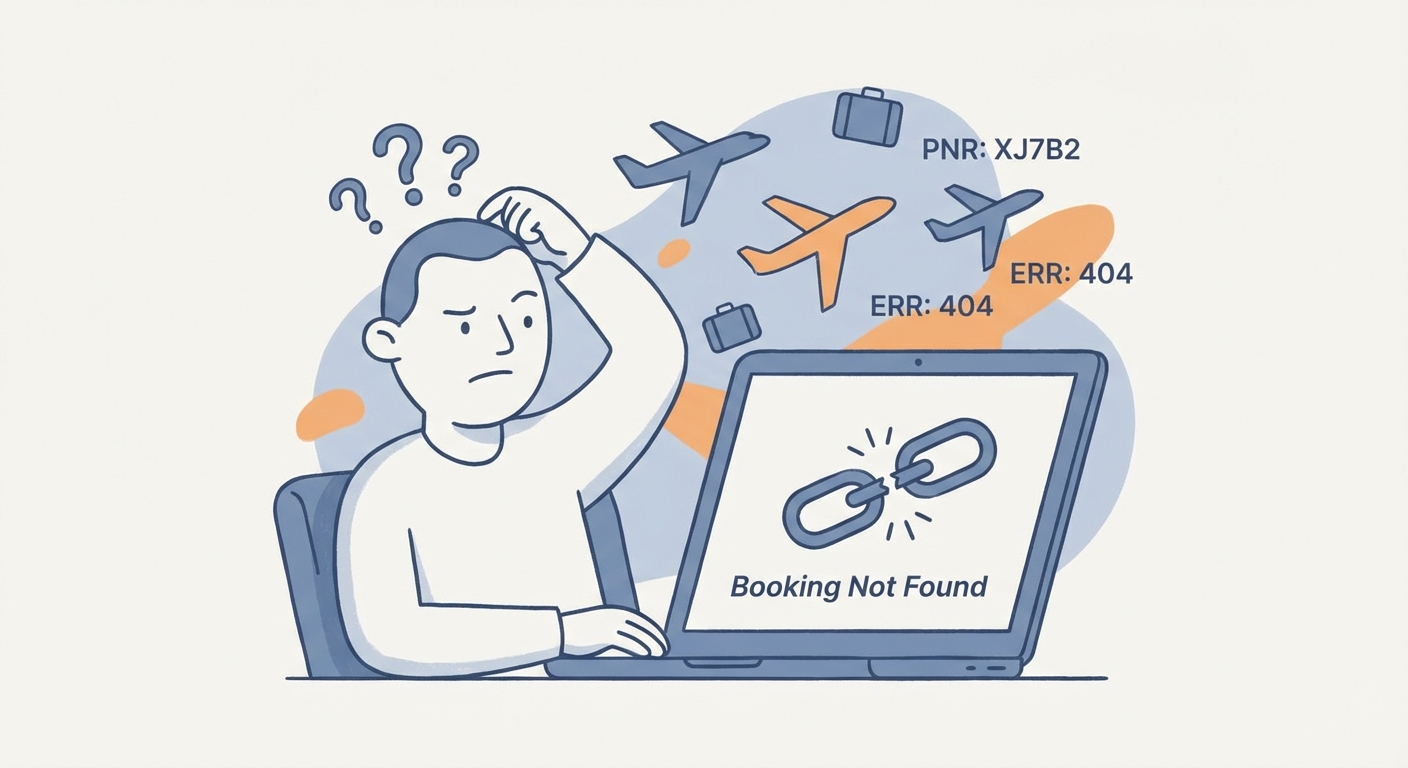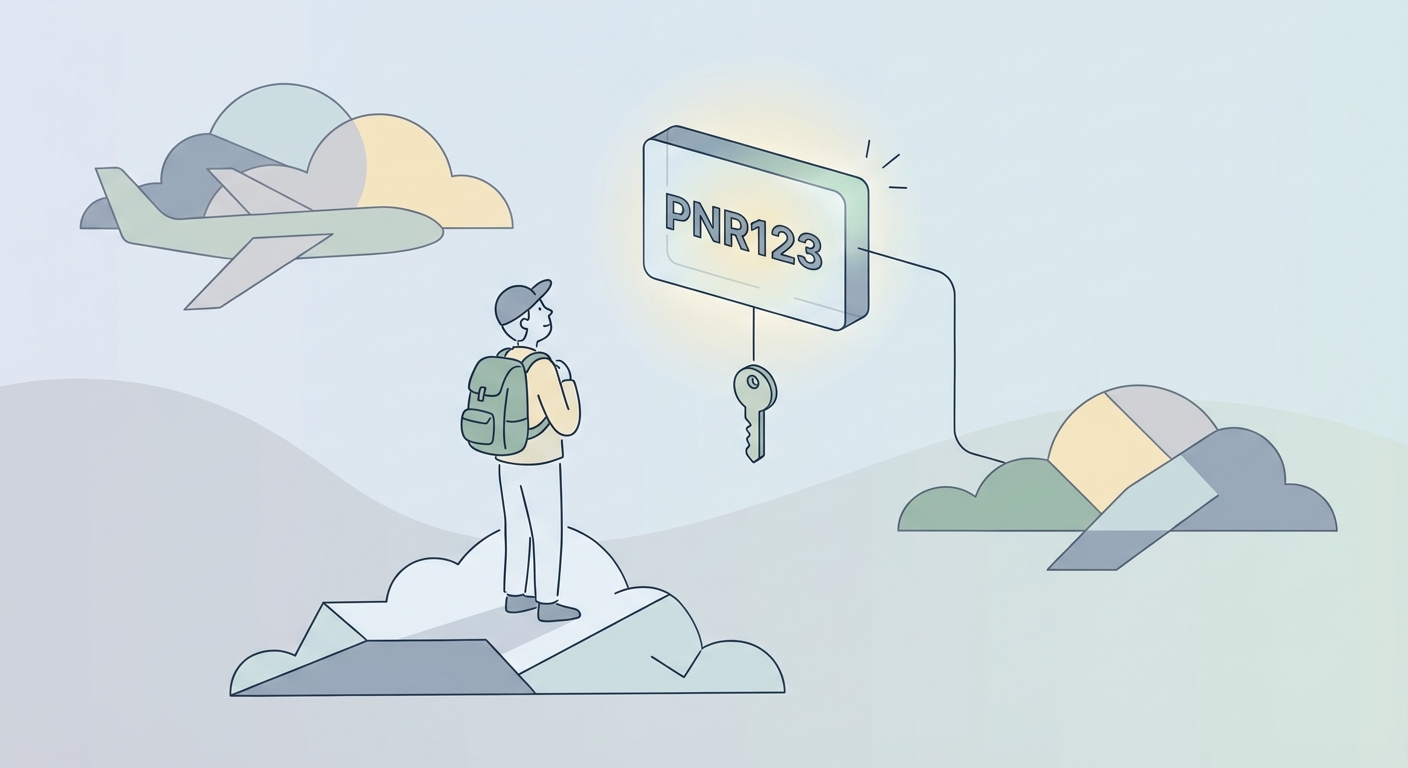What Are the Major Global Distribution Systems in Travel Booking?
TL;DR
- This article covers the primary global distribution systems (GDS) used in the travel industry. It explores the functionalities of Amadeus, Sabre, and Travelport, detailing how they connect travel providers (airlines, hotels, car rentals) with travel agencies and online booking platforms. Understanding these systems is crucial for anyone involved in travel booking and distribution.
Understanding Global Distribution Systems (GDS)
Did you ever wonder how travel agents seem to magically find you the best deals on flights and hotels? It's not magic, it's mostly thanks to Global Distribution Systems, or GDS.
Basically, a GDS is a huge, worldwide computer network. Think of it as a central hub that connects travel service providers – airlines, hotels, car rental companies, you name it – with travel agencies and online booking platforms. It's how travel agents can see all available flights, rooms, and rates in real-time and book them for you, without having to check each airline or hotel individually, which would take forever, honestly.
- Definition of a GDS: It's a network that acts as a single access point for travel agents, online travel sites, and even big companies to book airline seats, hotel rooms, rental cars and other travel stuff.
- Historical Context: The whole thing started with airline reservation systems. Airlines needed a way to manage their inventory, so they created these systems. Before GDS, booking a flight involved a lot of phone calls, telex machines, and paper tickets – it was a real hassle. Over time, these systems evolved into what we know as GDS today. Imagine trying to book a flight back in the day without computers... yikes.
- Importance in the Travel Industry: GDS is super important because it connects the suppliers (like airlines and hotels) with the distributors (travel agents and online travel agencies, or OTAs.) This makes it easier for everyone to find and book travel.
- Impact on Travel Agencies and OTAs: For travel agencies and otas, gds means they can offer more options and better prices to their customers. They can access a wide range of travel products from different suppliers in one place.
It's all about the tech. The technical infrastructure of a GDS is quite something: a centralized database, network connections, and communication protocols. Information is transmitted between suppliers and distributors.
- Technical Infrastructure: At its core, a GDS relies on a centralized database. This database stores all the information about flight schedules, hotel availability, car rental options, and more. It's a massive amount of data that's constantly updated.
- Data Flow: When a travel agent searches for a flight, the request goes through the GDS, which queries the airlines' systems. The GDS then presents the results to the travel agent. Once a booking is made, the GDS updates the airline's inventory and sends confirmation to the travel agent. Its a complicated system.
- APIs and Connectivity: APIs are a big deal now. They're like digital connectors that allow different systems to talk to each other. APIs act like standardized messengers, allowing different software systems (like a hotel's booking system and a GDS) to request and exchange information in a structured way. Modern gds systems use APIs to connect with suppliers and distributors, making the whole process more efficient.
- Communication Protocols: To make all this data exchange happen smoothly, GDS systems use specific communication protocols. Think of these as the languages that different computer systems speak to understand each other. Common ones include EDIFACT (Electronic Data Interchange for Administration, Commerce and Transport), which is a widely used standard for electronic business transactions, and XML (Extensible Markup Language), a more flexible format that's great for structuring data. These protocols ensure that information like flight availability, prices, and booking details are transmitted accurately and consistently between the GDS and its connected partners.
- Real-Time Updates and Availability: One of the key things about GDS is that it provides real-time updates. This means that the information you see is always accurate and up-to-date. This is crucial for ensuring that bookings are accurate and that customers don't end up with surprises.
Using a GDS has a lot of benefits for travel professionals. The robust technical infrastructure we just discussed directly enables these advantages, making travel planning smoother and more efficient for everyone involved.
- Wider Reach to Travel Suppliers: Accessing a global inventory of flights, hotels, and other services. You can see everything that's available, no matter where it is in the world.
- Increased Efficiency: Streamlining the booking process and reducing manual effort. Instead of contacting each supplier individually, you can do everything in one place.
- Improved Customer Service: Providing real-time information and personalized travel options. You can quickly find the best options for your customers and provide them with up-to-date information.
- Enhanced Revenue Opportunities: Accessing negotiated rates and special deals. GDS often have negotiated rates and deals that you wouldn't be able to get on your own.
So, next time you're booking a trip, remember the GDS – the unsung hero of the travel industry. Now, let's talk about some of the major players in the GDS world...
The Major Players: Amadeus, Sabre, and Travelport
Okay, so you're probably thinking, "GDS...sounds boring," right? But trust me, without these systems, booking a simple flight would be like trying to find a needle in a haystack, a really big haystack. These systems are the backbone of the travel industry, and three names pop up constantly: Amadeus, Sabre, and Travelport. Let's dive in, shall we?
Amadeus, it's a name you hear a lot in travel circles. It started back in the late 80s, and now it's a massive player, holding a significant chunk of the market. They're everywhere – airlines, hotels, car rentals, you name it. Plus, they're not just about booking flights; they offer a whole suite of services.
- Overview of Amadeus: Amadeus has a long history, a huge market share, and a global presence. It's one of the top GDS providers, connecting travel agencies and suppliers worldwide.
- Key features: Think flight booking, hotel reservations, car rentals, and even those extra services like baggage fees or seat upgrades. It's a one-stop-shop for travel agents.
- Amadeus solutions for different travel segments: Whether it's corporate travel, leisure trips, or online travel agencies, Amadeus has solutions tailored for each. They get that a business traveler has different needs than someone backpacking through Europe.
- Technological innovations: Amadeus is investing big time in ai and machine learning. They're using these technologies to personalize travel experiences and make booking even easier. Imagine ai recommending the perfect hotel based on your past trips.
Then there's Sabre. It also has a long history, and it's a major force in the GDS world. Sabre is known for its robust technology and its focus on innovation.
- Overview of Sabre: Like Amadeus, Sabre has been around for a while and has a substantial market share. Their reach is global, connecting travel suppliers and agencies across the world.
- Core functionalities: Sabre handles flight booking, hotel reservations, car rentals, and even full-blown travel packages. They aim to provide a comprehensive booking experience.
- Sabre's focus on technology: Sabre is big on tech, especially mobile solutions, data analytics, and personalization. They're always looking for ways to make travel booking more efficient and user-friendly.
- Sabre solutions for airlines and hotels: They offer solutions for revenue management, distribution, and operations. Basically, they help airlines and hotels optimize their business.
And let's not forget Travelport. This one's a bit different because it includes a few different brands: Apollo, Galileo, and Worldspan. Travelport focuses on connecting travel buyers and sellers through its platform.
- Overview of Travelport: Travelport has a rich history, with brands like Apollo, Galileo, and Worldspan under its umbrella. Each brand brings its own strengths to the table.
- Key services: Just like the others, Travelport offers flight booking, hotel reservations, car rentals, and travel merchandising. They're all about providing a wide range of options.
- Travelport's emphasis on innovation: They're keen on digital solutions, mobile apps, and data-driven insights. Travelport is focused on using technology to improve the travel experience.
- The value proposition of Travelport: Connecting travel buyers and sellers is their main goal. They strive to make the process seamless and efficient for everyone involved.
Okay, so how do these three giants stack up against each other? It's not always a clear-cut answer, but here’s a breakdown.
- Market share analysis: Each GDS has a significant piece of the pie, but their market dominance varies by region. Some may be stronger in Europe, while others have a bigger presence in North America.
- Geographical strengths: Amadeus has a strong foothold in Europe and parts of Asia, while Sabre is quite popular in North America. Travelport has a decent global presence, but maybe not as dominant in specific regions.
- Technological advantages: Each GDS has its own tech strengths. Amadeus is investing heavily in ai, Sabre is focused on mobile solutions, and Travelport is pushing digital innovation.
- Pricing models: The pricing structures and commission rates can vary between the GDS. This can impact which one travel agencies choose to work with.
To visualize this, here's a simple comparison:
So, what does all this GDS stuff mean for you, the adventure seeker? Well, it's all about making your travel planning easier and more personalized. And that's where Gotriply comes in.
- Gotriply's ai-powered trip planner: Gotriply uses ai to craft personalized itineraries for adventure seekers. Tell it what you're into, and it'll suggest the perfect trip. Gotriply leverages GDS by accessing its vast inventory of flights, hotels, and car rentals to build comprehensive travel plans. It integrates with GDS providers to pull real-time availability and pricing, allowing it to offer seamless booking assistance for its users.
- Destination exploration guides: Discover hidden gems and unique experiences with Gotriply's destination guides. It's like having a local expert in your pocket.
- Booking assistance for hotels and activities: Simplify your travel planning with Gotriply's booking assistance. It takes the hassle out of finding the best deals.
- International and domestic travel packages: Gotriply offers tailored travel packages for unforgettable vacations. Whether you're dreaming of a tropical beach or a mountain trek, they've got you covered.
So there you have it – a quick look at the major players in the GDS world. It's a complex system, but it's what makes modern travel possible. Next up, we'll explore how GDS is evolving and what the future holds.
The Future of GDS in Travel Booking
Ever wonder if those old-school GDS systems are gonna stick around? Turns out, they're not going anywhere; they're just evolving, like everything else in tech.
The future of gds is all about embracing new tech. I mean, you can't really avoid it, can you? These systems are getting smarter, faster, and more connected than ever before. Think of it as a glow-up, but for travel booking.
- The impact of ai and machine learning on GDS: ai is changing the game for pretty much everyone, and gds is no exception. Imagine a system that predicts what travelers want before they even know it themselves. That's the power of predictive analytics. ai can also personalize recommendations, suggesting hotels or flights based on past travel history. And who wouldn't want automated processes to handle the boring stuff?
- Blockchain technology: Okay, blockchain might sound like some techy buzzword, but it has real potential for making travel transactions more secure and transparent. Think about it: secure booking confirmations, tamper-proof records, and efficient payment processing. It's like fort knox for your travel plans.
- Cloud computing: Remember when everything was stored on clunky servers? Cloud computing offers scalability and flexibility. GDS systems can handle massive amounts of data without breaking a sweat. Plus, it's way more cost-effective than maintaining a bunch of hardware.
- Mobile technology: People book everything on their phones these days, right? GDS systems are adapting with mobile booking apps, location-based services, and mobile payments. It's all about making travel planning as easy as ordering a pizza.
It's not all sunshine and roses, though. GDS providers face some serious challenges.
- Competition from direct booking channels: Airlines and hotels are pushing direct bookings to avoid GDS fees. It's a battle for control, and GDS providers need to prove their value by offering something that direct channels can't match – like a broader range of options and better deals. GDS offers broader options because they aggregate inventory from numerous airlines, hotels, and other providers in one place, giving agents and travelers a comprehensive view. They can facilitate better deals through negotiated rates and bulk purchasing power with suppliers, which can then be passed on to consumers.
- Adapting to changing consumer behavior: Travelers want personalized experiences and expect everything to be mobile-friendly. GDS systems need to keep up with these demands or risk becoming irrelevant.
- Data security and privacy concerns: Data breaches are a nightmare scenario. GDS providers need to invest heavily in security to protect sensitive travel information and comply with regulations. It's not just about avoiding fines; it's about building trust with customers.
- Collaboration with travel tech startups: Instead of seeing startups as a threat, GDS providers should partner with them. These startups often have innovative technologies that can enhance GDS systems. For example, a startup specializing in ai-powered itinerary optimization could integrate with a GDS to offer more dynamic and personalized travel planning. Another startup focused on sustainable travel options could partner with a GDS to highlight eco-friendly choices to travelers. It's a win-win situation.
Despite the challenges, GDS remains super important.
- GDS as a central hub for travel distribution: GDS connects suppliers, distributors, and consumers. It's the glue that holds the travel industry together, and it’s not easy to just replace that.
- Integration with other travel platforms: Online travel agencies (OTAs), metasearch engines, and travel management companies (TMCs) all rely on gds. These integrations make it easier for travelers to find and book travel.
- GDS as a source of travel data and insights: GDS systems collect a ton of data about travel patterns and preferences. This data is valuable for decision-making and strategic planning. Airlines, hotels, and travel agencies can use it to optimize their operations and improve their services.
- The future of gds: adapting to the changing needs of the travel industry.
The future of GDS lies in its ability to adapt and innovate. As technology evolves and consumer preferences change, GDS providers must embrace new technologies, address challenges, and collaborate with other players in the travel ecosystem to remain relevant and valuable.
So, yeah, GDS isn't going anywhere. It's just gonna keep changing. Now, let's wrap things up and see where all this is headed.
Conclusion
So, where does all this leave us? GDS might seem like ancient tech, but it's still super relevant, even if it's evolving faster than ever.
Amadeus, Sabre, and Travelport aren't just names; they're the backbone of how travel gets booked. They connect everything, from flights to hotels, making a vast global inventory accessible to travel professionals and, by extension, to us travelers.
Ultimately, GDS makes travel planning possible on a massive scale. Think of it as the invisible plumbing of the travel industry, quietly working behind the scenes to ensure we can find and book our journeys, even if we don't always see its direct impact.
The future? Expect ai, blockchain, and mobile technologies to shake things up even more. GDS needs to adapt by integrating these innovations and proving its unique value proposition against direct booking channels. It's a dynamic landscape, and the GDS systems that successfully evolve will continue to be essential.
It's a wild ride, but GDS isn't going anywhere soon, even if it looks kinda different in a few years.







